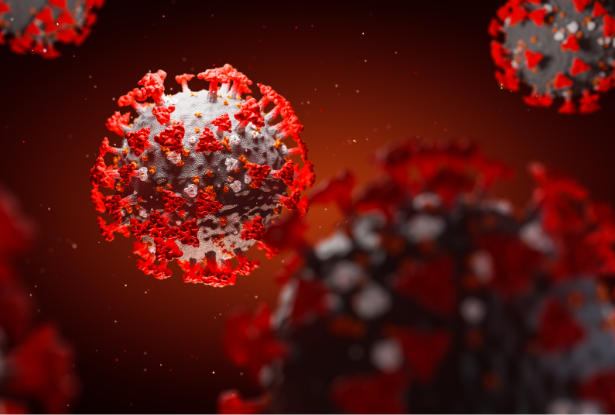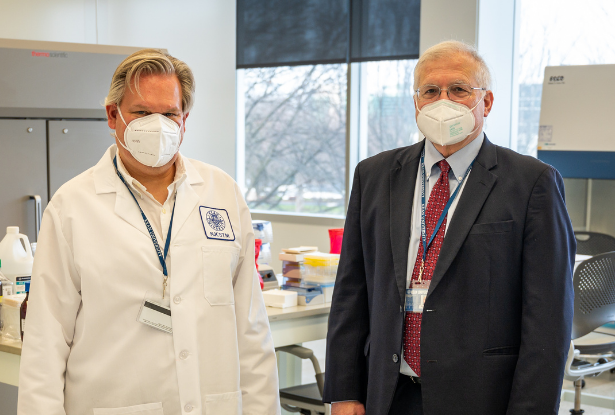Top Scientists from Kean and Other Universities Collaborate on Pandemic Preparedness

Kean University scientists are working with their counterparts from premier institutions across the country to combat COVID-19 and prepare for the next pandemic as part of a newly launched group called the Consortium of Scientists for Pandemic Preparedness (CSPP).
In all, 21 scientists from 14 universities and life science companies, including Harvard University, Massachusetts Institute of Technology, Rutgers University and Princeton University, are part of the initiative.

Four Kean scientists are members of the Consortium: Jeffrey H. Toney, Ph.D., provost and vice president for research and faculty; Keith Bostian, Ph.D., dean of New Jersey Center for Science, Technology and Mathematics (NJCSTM); Robert Pyatt, Ph.D., director of the Kean COVID-19 Diagnostic Lab; and Thomas Richardson, Ph.D., president of the Institute for Life Science Entrepreneurship (ILSE) at Kean.
“The whole idea for the Consortium is to bring out-of-the-box, innovative thinking to how we deal with future pandemics and how we get ready for them,” Bostian said. “What we're trying to do is bring a collection of scientists together who don't have specific technologies or approaches in mind, but will be collectively creative in coming up with ideas that are worth pursuing.”
The CSPP scientists are experts in public health and administration, epidemiology, virology, biology, chemistry, clinical care and data science. Together, they will focus on creating therapeutic, diagnostic and vaccine products to help protect against future outbreaks.
“The first thing is to make sure that we have surveillance around the right types of pandemics that will be coming. Second, is to look at the types of infectious disease challenges, understand what's common among them, and develop new ways of attacking the problem — a universal coronavirus vaccine, for example. We also see potential for new diagnostics and therapeutics, and even repurposing existing drugs that could have an effect on the overall health of patients that are infected,” said Richardson, co-chair of CSPP.
Toney is the co-lead of CSPP’s Education and Outreach working group along with a University of Memphis professor. They will create programs for students and seek to clarify the sometimes confusing messaging about the COVID-19 response. He said research internships for Kean students, for credit or a stipend, are being planned. A summer pilot program for students is also being developed.
“We're going to create a virtual student research community where we can all learn from each other,” Toney said. “Remotely, we can take on specific projects to not just ask a question but to actually add value to the mission of the Consortium.”
Toney sees opportunities for research, mentorship and graduate school for Kean’s students.
“It’s a great way to connect our students to graduate programs at these top institutions. I know Kean students will impress a mentor at any university if given the opportunity to prove themselves,” he said.
The Consortium has recently reached out to Eric Lander, Ph.D., White House chief science advisor and director of the Office of Science and Technology Policy, to offer the group as a resource in planning the COVID-19 response and preventing future pandemics. It is also planning a symposium to bring other thought leaders in science together to tackle the tough issues around pandemic threats.
“CSPP was formed to try to advance science, develop products, promote educational resources and align experts in their fields in a meaningful way,” Richardson said. “We can be proactive and avoid the widespread devastation to public health and the economy that results from these pandemics.”